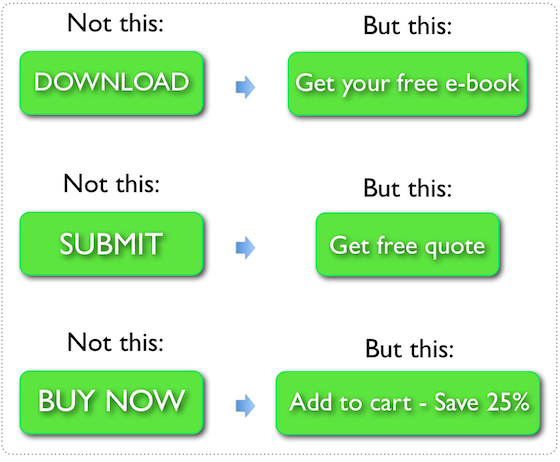Whether you’re trying to improve your own website or giving recommendations to someone else, conversion rate optimisation should be a big part of your conversation. Conversion rate optimisation is about doing more with the visitors you’re already getting; it’s the steps you can take to improve the likelihood that visitors will complete your macro- and micro-conversions. And since website conversion is your key to profitability, it’s important!
Whenever you’re trying to look at a website with fresh eyes, I recommend asking these five questions, so that you can quickly create the flow that will get your visitors to the end of the funnel and get rid of distractions and roadblocks that stand in your way. You don’t have to be a website expert identify ways to improve your conversion optimisation. You just have to ask the right questions.
1. Who Are You?
When somebody lands on your homepage, how long does it take them to figure out where they are and what you do? Not even a company like Apple or Coca Cola is immune from first-time visitors with very little brand knowledge. You need to make it very clear what your business is offering.
One website I was shown this week, seductivelyfrench.com, hasn’t decided whether to be a content company or an ecommerce company. And that can cause trouble, from a conversion standpoint.

One of the basic tenets of marketing is the principle of targeting. You must make conscious decisions about the types of people you’ll be selling to – your “target market.* You MUST speak directly to these people and give your pitch before they bounce.
2. Why Should I Trust You?
A typical website will likely want to collect visitor information at some point. Usually, this includes:
- E-mail address (subscriptions, newsletters, etc.)
- Contact information (form submissions)
- Payment information (e-commerce)
But all of the research suggests that website trust isn’t assumed. It must be earned and established within the first seconds of a visitor’s arrival. How well does the website accomplish this?
You need to find ways to incorporate what are known as “trust signals”. Trust signals are symbols of your legitimacy as a company, your security as a recipient of private information, and your ability to protect credit card data. Among the tools you may consider:
- Privacy and information usage policies
- Contact information readily available
- Links to social media accounts
If you look at a website like Mint.com, which not only collects private information, but syncs with your bank’s financial data, establishing trust quickly is of huge importance.
3. What Do You Want Me To Do?
A well-known book in web conversion fundamentals is Steve Krug’s “Don’t Make Me Think.” The title says it all. Visitors come to your website and don’t want to work hard to get what they’re looking for. For this reason, unconventional navigation or site layout or labeling rarely performs better than a standard template that mimics many existing sites.
Beyond giving your visitors the kind of experience they expect to have, you also have to tell them where to go and what to do. Give your visitors too much autonomy and they will leave. Direct them to the information and actions you want and two things will happen: (1) more visitors will complete your site goals, and (2) they’ll be happier in the process because you’ve made it easy.
Strong “calls to action” are the key to giving direction to your site visitors. Make them relevant and valuable. Go beyond simple “continue” or “buy now” buttons, and add some substance to your appeals. And don’t make your pages too cluttered with action calls. I generally recommend no more than 3 per page.

4. Why Should I Choose You? (Value)
You must quickly and efficiently communicate not only who you are and what you do (see #1 above), but especially why you are the best choice. You have a couple of ways to communicate this.
- Explicit. If you can articulate why people should prefer you to the alternatives, then feel free to spell it out. Recognize that your customers have different needs though. Some care about pricing, others care about quality, some want fast and efficient, others want to feel great.
- Implicit. The only thing better than telling is SHOWING. For example, I know a dentist who has fanatical existing customers and beautiful, calming interior design in the office. Assuming these are her only real competitive advantages over the many other dentists in the area, how can she implicitly leverage these things? She obviously needs some big, beautiful imagery on the homepage and she needs to emphasize her customer testimonials or the links to her review site profiles, so that these can help her gain business.
Just remember that you need to differentiate yourself in order to stay in business. And your website has to communicate your positive differences and even overemphasize them. (Remember: “Don’t Make Me Think.”)
5. How Do I Give You Money? (Checkout Funnel)
The last question to ask assumes that the visitor wants to hire you, pay you, buy from you, give you information, etc. What does this process look like?
The best thing a webmaster can do is get somebody else to go through the checkout process. There are plenty of services that do this (usertesting.com is just one of the many). Or you can get someone who has never looked at the site before. You’re looking for points of unnecessary difficulty, confusion, mistrust, etc. which can all lead to abandonment so you can fix them.
One website I worked with looked just like an ecommerce website, but the checkout process ended with a form submission so the customer could get an e-mailed quote and invoice. Needless to say, something that was oblivious to the owner was causing almost everyone to drop from the site or find somewhere else with an easier purchase process.
Remember that marketing is all about asking the right questions and having the right answers. Conversion rate optimisation specifically is about having the answers to the questions your website visitors are going to ask.
If you have your own questions about improving the conversion rate of your website, feel free to ask them in the comments below. And if you want a more comprehensive conversion rate optimisation solution, you’re welcome to peruse the conversion rate optimisation services we can offer you.
